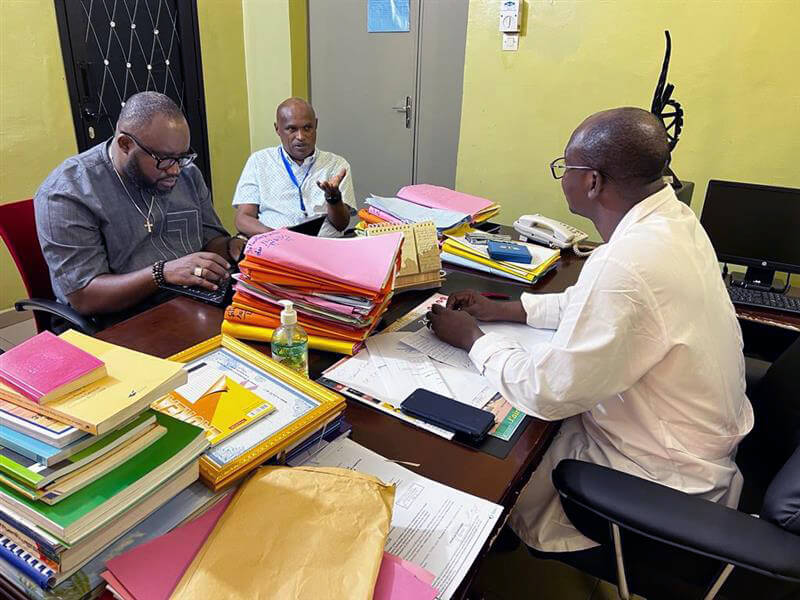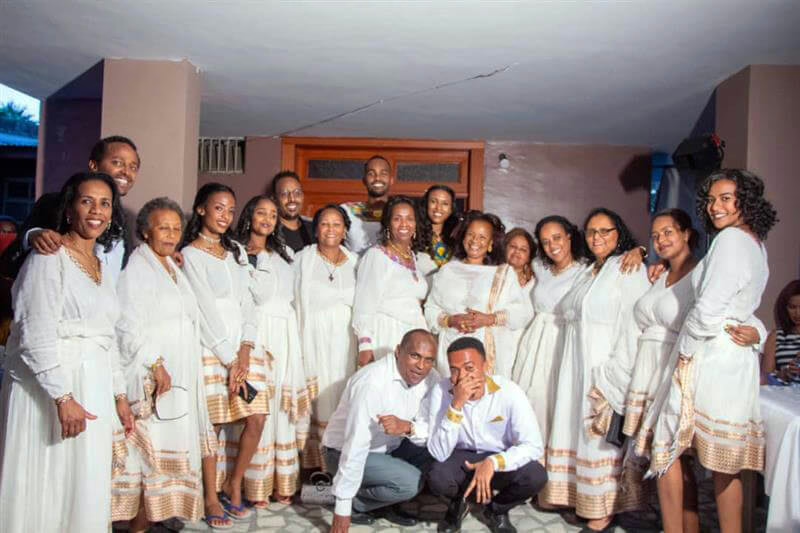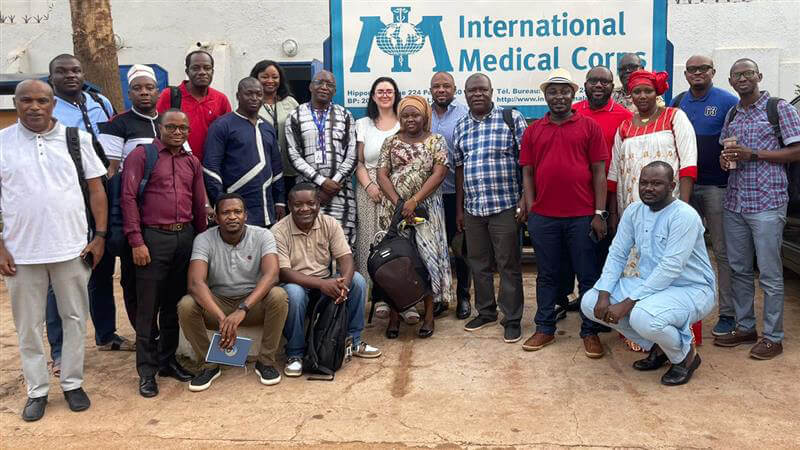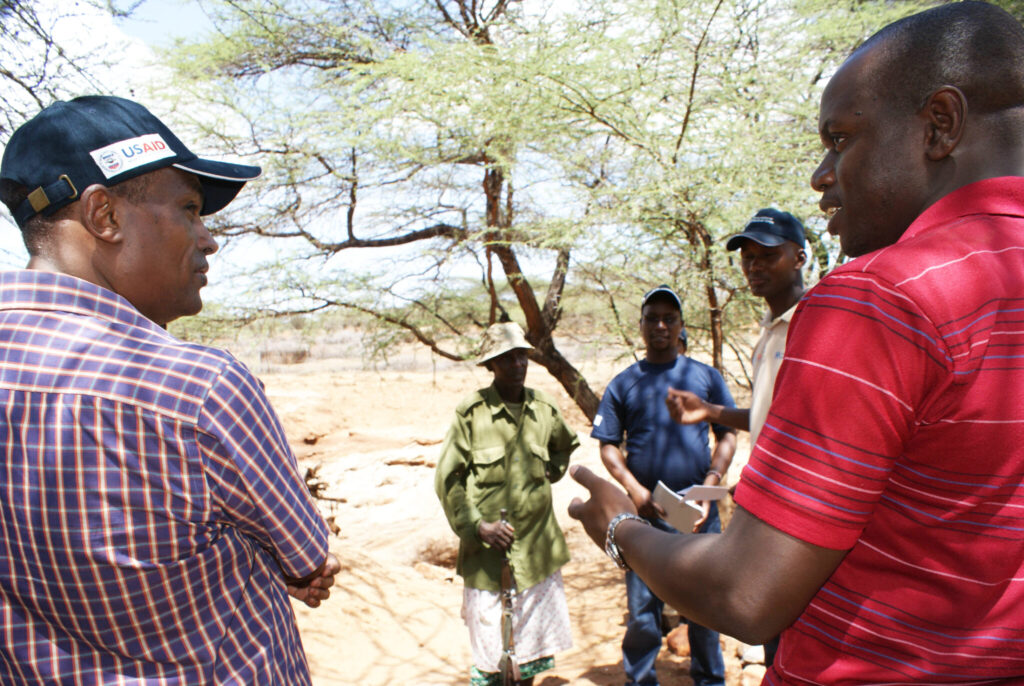As we reflect on International Medical Corps’ 40-year history, we’re highlighting some of the courageous volunteers and staff members who have dedicated their lives over the years to helping others. This profile of Dr. Dayan Woldemichael is the third in that series. We profiled two volunteers, Dr. Mike Karch and Dr. Chuck Wright.
“When I was the Country Director in Chad, we had a problem,” says Dr. Dayan Woldemichael from his home in East Africa, where he is currently a Senior Technical Advisor with International Medical Corps. “One of the challenges of working in remote areas is that it’s very difficult to attract experienced healthcare providers. There are qualified candidates, but they lack experience. So in Chad, we hired junior healthcare providers, and started training them.”
“Eventually, I was reassigned to the Burundi mission and left Chad. Several years later, I returned to Chad in my current role. This time around, we are working with internally displaced people in government health facilities. I was visiting one of these facilities, and I was introduced to the head of the health facility, who recognised me immediately. ‘Dr. Dayan!’ he exclaimed. He called me Country Director. He was one of the junior providers I had trained many years ago. Now, he is the head of a health facility run by the Ministry of Health.”

Dr. Woldemichael smiles broadly while telling this story. In his more than 15 years with International Medical Corps, Dr. Woldemichael has taken on many roles, including as Country Director in Chad and then in Burundi, and supporting International Medical Corps’ response to the Syrian refugee crisis in Jordan, training countless team members along the way. His work is emblematic of the life he’s lived—working in public health for nearly 30 years and helping others wherever he goes.
Dayan Woldemichael was born in eastern Ethiopia, in the beautiful walled city of Harar. He comes from a large family that moved often due to his father’s job with the police force. The eighth of 10 children, Dayan saw his older siblings go off to university, pursuing higher education and then careers. It was clear that this would be his path.

“I always wanted to be a doctor,” says Dr. Woldemichael. “I don’t know the reason why, but I have always aspired to be a doctor when I was a child and growing up.”
He went to high school in Addis Ababa, the capital of Ethiopia, then earned his medical degree from Addis Ababa University—one of only two medical schools in the country at the time—and a post-graduate diploma in public health from the University of Liverpool in the UK.
His first job as a doctor was with the Ethiopian Ministry of Health, where he encountered a refugee crisis for the first time—people who had fled Somalia to Ethiopia, searching for food, clean water, safety and stability.
“The first time I walked into a refugee camp, I was shocked,” he explains. “The resources were very limited. The shelters in which people lived were made of plastic sheets, Savana grass and other local materials. It was extremely hot and humid. I saw a family of five living like this, and I couldn’t believe that they were able to survive in these conditions. But then, something changed.
“When I met the refugees in the clinic, I engaged with them and began to see that, mentally, they were very strong. Despite the challenges—being displaced from their homes and fleeing poverty and violence—they were determined to survive. The more I interacted with them, the more inspired I became by their resilience. It gave me hope. Some of them were doctors and nurses, and we worked with them to develop our health programming. They really contributed to the design and implementation of our program, which is critical. When you work with the community, the program will be much more effective and have lasting benefits.”
Dr. Woldemichael first joined International Medical Corps as a Program Director in the Darfur region of Sudan, where he conducted needs assessments, implemented health programming and helped construct, rehabilitate and equip several health facilities.
These days, Dr. Woldemichael works from home and travels to different countries frequently, designing and implementing health programs, including climate-resilient programming. He also works closely with local partners and key stakeholders to ensure the programs’ success.

“When I deploy to a given country—for example, Nigeria or Mali—the first thing I do when I arrive is go to the country office for a security briefing, which is a very crucial step, as International Medical Corps prioritises staff safety,” Dr. Woldemichael explains. “After that, I meet with the Programs team and go over the technical details of each program, achievements to date and the challenges they are facing. Then, we’ll make a schedule for trips to the field, where the majority of our programming takes place. When we travel to the field, I meet with local authorities, visit the health facilities we’re supporting and come up with action items to solve the current challenges they are facing. I also meet with donors, the Ministry of Health and other NGOs. When I return home, I continue to work with the country team as they implement the changes we discussed—and hopefully, their challenges will be diminished.
“What makes International Medical Corps different,” he says, “is that we really go to the most difficult places to reach, and we train local communities so that the impact of our work will continue and grow in the coming years. The communities trust us. They believe in our neutrality, so we are always accepted and respected. This gives me the energy I need to do my job—I’m inspired by the people we serve and the commitment of International Medical Corps to help people, no matter where.”
